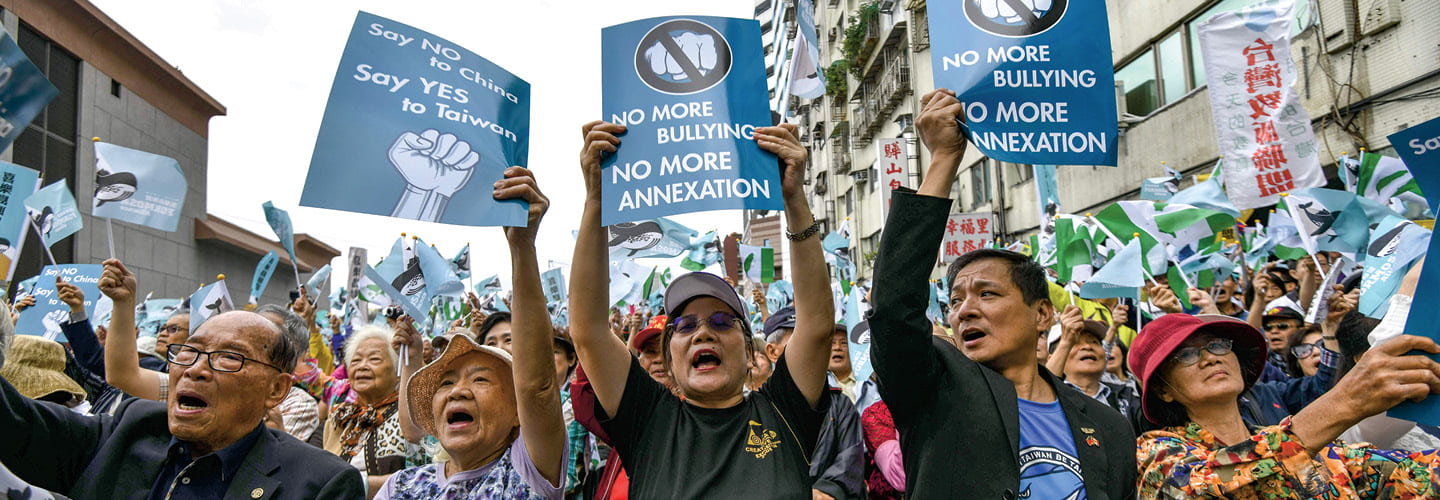Like most people in Taiwan, 16-year-old Wei-Yu Lu has repeatedly been reminded in recent months that his freedom is in peril. For several days in early October, dozens of Chinese fighter jets invaded Taiwan’s air space—a deliberate provocation and a clear signal that China has never recognized the island as a separate territory. A month earlier, the Chinese military conducted an exercise—with warships firing into the sea and landing vehicles sweeping onto a beach—to simulate an invasion of Taiwan.
Lu, an 11th-grader at the High School of National Taiwan Normal University in the capital city of Taipei, sees these events and other aggressive moves by China as deeply worrying.
“To be honest, I am really concerned about the future of Taiwan,” he says. If his homeland came under the control of the Communist government in Beijing for the first time ever, he adds, “Taiwan would definitely lose the democracy and autonomy we have.”
In recent months, people in Taiwan have been reminded that their freedom is in peril. Among them is 16-year-old Wei-Yu Lu. For several days in early October, dozens of Chinese fighter jets invaded Taiwan’s air space. It was a clear signal that China has never recognized the island as a separate territory. A month earlier, the Chinese military simulated an invasion of Taiwan. During the exercise, Chinese warships fired into the sea and military vehicles swept onto a beach.
Lu is an 11th-grader at the High School of National Taiwan Normal University in the capital city of Taipei. He sees these events and other aggressive moves by China as deeply worrying.
“To be honest, I am really concerned about the future of Taiwan,” he says. If his homeland came under the control of the Communist government in Beijing for the first time ever, he adds, “Taiwan would definitely lose the democracy and autonomy we have.”

